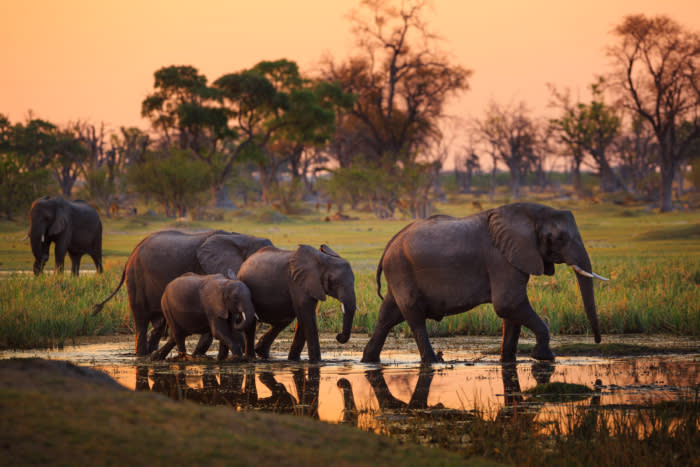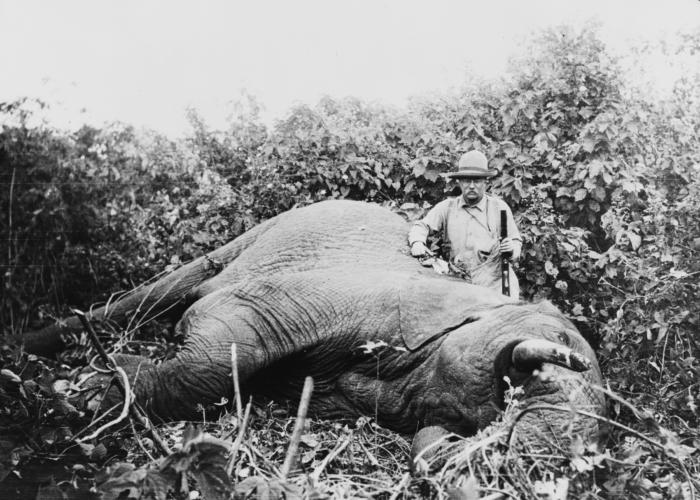Why Botswana’s President Just Threatened to Send 20,000 Elephants to Germany

- Oops!Something went wrong.Please try again later.
Botswana’s President, Mokgweetsi Masisi, proposed a most unusual export to Germany last week: Elephants — 20,000 of them. The heated offer came in response to comments made earlier by Germany’s Minister of the Environment, Steffi Lemke, who suggested a ban on the import of hunting trophies into the country. Lemke, a leader in the country’s Green Party, cited the possible new restrictions as a way to prevent poaching.
“We would like to offer such a gift to Germany,” Masisi told the German tabloid Bild. “Twenty thousand elephants for Germany, this is not a joke.” Masisi noted that Lemke did not understand the reality of living with a growing population of such a large animal.
“It is very easy to sit in Berlin and have an opinion about our affairs in Botswana. We are paying the price for preserving these animals for the world and even for Lemke’s party,” he said.
Botswana Elephant Population Soars
According to Masisi, the population of elephants in Botswana has swelled to more than 130,000 due to conservation efforts. It’s estimated that the biological carrying capacity for elephants in the county is only around 60,000.
Masisi went on to explain that elephants were trampling people to death. He explained that the explosion in population has caused serious damage to villages and decimated crops.
In an effort to curb the growing population of elephants in Botswana, the country has offered to send 8,000 elephants to Angola and another 500 to Mozambique.
Trophy Hunting as a Tool of Conservation?
Elephant hunting for sport has been at the center of the trophy hunting debate since the tradition began. Elephants are often personified and cherished because of their intelligence. This, in particular, stirs strong emotions for animal rights activists, such as Save the Elephants.
As the largest land animal, they are quite literally the “elephant in the room” when the discussion of trophy hunting arises.
Conservation efforts have led to a healthy increase in elephant populations in several locations worldwide. Elephant hunting was banned in Botswana in 2014 in an effort to preserve the species, but the ban ended in 2019 amid immense pressure from local communities.
In his interview with Bild, Masisi stated that hunting elephants is vital to the country as an “important means to keep them in check.”
Meanwhile, Germany remains one of the largest importers of hunting trophies in the European Union. In 2023, 26 African elephant trophies were imported to the country. Botswana’s president recently warned that a hunting trophy import ban would amount to “a resurgence of colonial conquests” if it comes to fruition. He hinted at the management of the population, the safety of his people, and the economic value to his communities as being a driver for his push to preserve the hunts.
“I find it unfathomable that you’d be horrified of the protection of ones’ livelihood – rural, poor people, who have allowed 40% of the country to be set aside for conservation – and [sic] when they defend themselves,” Masisi said.
The post Why Botswana’s President Just Threatened to Send 20,000 Elephants to Germany appeared first on GearJunkie.



